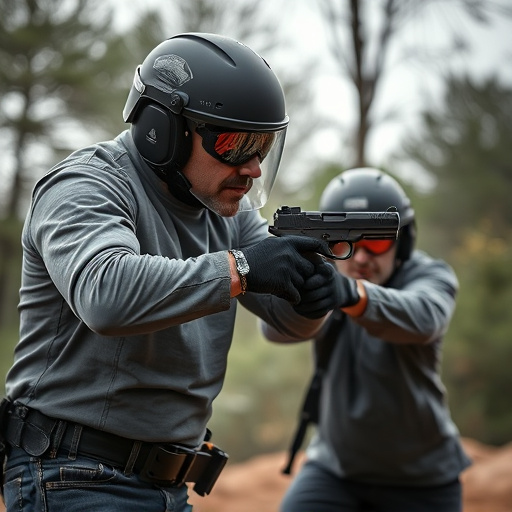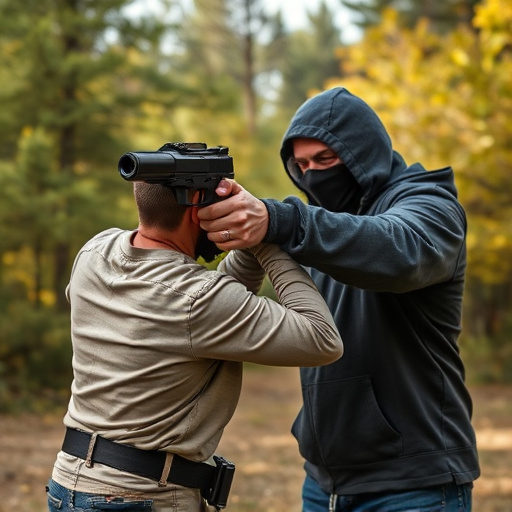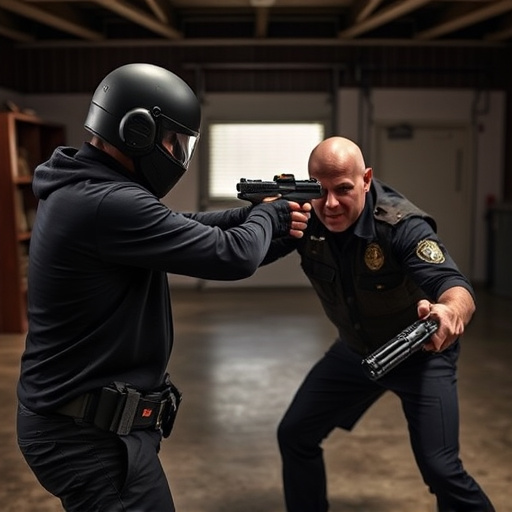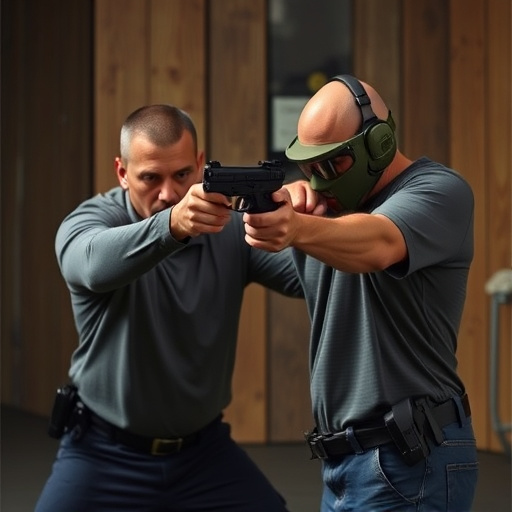Civilian Taser Ownership: Navigating State Laws for Legal Self-Defense
Civilians in the US increasingly seek non-lethal self-defense options, with Tasers being a popular c…….
Civilians in the US increasingly seek non-lethal self-defense options, with Tasers being a popular choice. However, Taser legality varies widely by state, requiring thorough understanding of federal and local regulations. Key factors to consider include background checks, training, permits/licenses, and compliance with specific laws for safe, responsible ownership of legal non-lethal weapons.
In today’s world, civilians seeking effective yet non-lethal self-defense options have turned to tools like tasers. This article explores the legal landscape surrounding civilian taser ownership, focusing on state laws in the United States. We’ll guide you through understanding non-lethal self-defense weapons from a civilian perspective, delving into federal vs. state regulations and the requirements for owning a taser. Key considerations and challenges will also be addressed to help individuals navigate the process of legally acquiring and using these powerful tools for personal safety.
- Understanding Non-Lethal Self-Defense Weapons: A Civilian Perspective
- Legal Framework for Taser Ownership: Federal vs State Laws
- Requirements for Owning a Taser: A Deep Dive into State Regulations
- Key Considerations Before Acquiring a Taser for Personal Use
- Navigating the Challenges: Accessing and Using Tasers Legally
Understanding Non-Lethal Self-Defense Weapons: A Civilian Perspective

In today’s world, civilians increasingly seek effective non-lethal self-defense options for personal safety. Among these, Tasers stand out as a popular choice. However, it’s crucial to understand that not all Tasers are created equal, and their legal status varies across states. Many individuals wonder about the types of Tasers that are legal for civilian ownership and the specific requirements they must meet.
Non-lethal self-defense weapons, including Tasers, are designed to incapacitate an assailant without causing permanent harm or death. These devices fire small probes connected to wires that deliver a powerful electric current, temporarily paralyzing the target. For civilians considering acquiring such a weapon for personal protection, it’s essential to familiarize themselves with state laws governing non-lethal self-defense weapons that are legal. Each state has its own set of regulations regarding age restrictions, training requirements, and permissible uses, ensuring public safety while allowing responsible individuals to protect themselves.
Legal Framework for Taser Ownership: Federal vs State Laws

In the United States, the legal framework for civilian taser ownership is a complex interplay between federal and state laws. While the Second Amendment guarantees citizens the right to bear arms, including non-lethal self-defense weapons like tasers, individual states have the autonomy to set specific regulations and restrictions. This creates a patchwork of rules across the country, making it crucial for prospective taser owners to understand both federal and state requirements.
Federal law permits civilians to own and carry tasers, provided they comply with certain guidelines. The primary concern is ensuring that individuals who possess these devices are responsible and not a threat to public safety. On the other hand, state laws often delve deeper into specifics such as permit requirements, waiting periods, age restrictions, and even registration processes. Some states have stricter regulations, while others maintain looser standards, making it essential for residents to check their local laws before acquiring a taser for non-lethal self-defense purposes.
Requirements for Owning a Taser: A Deep Dive into State Regulations

In many states across the US, the ownership of a taser is regulated under specific laws governing non-lethal self-defense weapons that are legal for civilians. These regulations vary widely from one state to another, reflecting differing public safety and law enforcement philosophies. Generally, aspiring taser owners must meet certain criteria before they can legally purchase and possess these devices.
A deep dive into state regulations reveals a common thread: background checks are mandatory. Applicants are typically required to undergo comprehensive background investigations to ensure they do not have a history of violence or criminal activity that would disqualify them from owning firearms, a measure aimed at keeping non-lethal self-defense weapons out of the hands of potentially dangerous individuals. Additionally, some states mandate training courses to educate owners on the safe and responsible use of tasers, while others require permits or licenses for ownership, further emphasizing the need for regulation in this area.
Key Considerations Before Acquiring a Taser for Personal Use

Before considering the acquisition of a taser for personal use, several key factors must be taken into account. It’s crucial to understand that while tasers are marketed as non-lethal self-defense weapons, their effectiveness and potential risks cannot be overlooked. Each state in the US has its own set of regulations regarding civilian taser ownership, with varying restrictions on who can possess and carry them.
Researching your state’s specific laws is essential to ensure compliance. Valid identification, training completion, and registration might be required. Additionally, understanding the legal implications of using a taser in self-defense or during an encounter with law enforcement is paramount. It’s important to note that misuse or unexpected outcomes can lead to serious injuries and potential legal consequences, highlighting the need for responsible ownership and handling.
Navigating the Challenges: Accessing and Using Tasers Legally

Navigating the legal landscape surrounding civilian taser ownership can be a complex task, as state laws vary widely. Many states have stringent requirements for individuals seeking to legally acquire and use non-lethal self-defense weapons like tasers. Permits or licenses are often mandatory, with specific criteria that must be met before purchase. These include background checks, training certifications, and even waiting periods.
Despite these challenges, understanding the rules is essential for responsible citizens looking to protect themselves. Some states allow qualified individuals to carry tasers without a permit, while others require registration or licensing. It’s crucial to research and comply with local laws to avoid legal repercussions. Additionally, proper training in taser use ensures safety and effectiveness during self-defense situations, making it vital to explore certified programs before considering ownership of these non-lethal self-defense weapons that are legal in many jurisdictions.
In exploring the legal landscape of non-lethal self-defense weapons, particularly tasers, it’s evident that state laws vary significantly. While federal regulations set the initial framework, states have the autonomy to impose additional requirements. Understanding these rules is crucial for civilians considering taser ownership. By delving into specific state regulations and key considerations, we’ve highlighted the importance of staying informed and navigating legal challenges to ensure responsible and lawful access to these self-defense tools.


